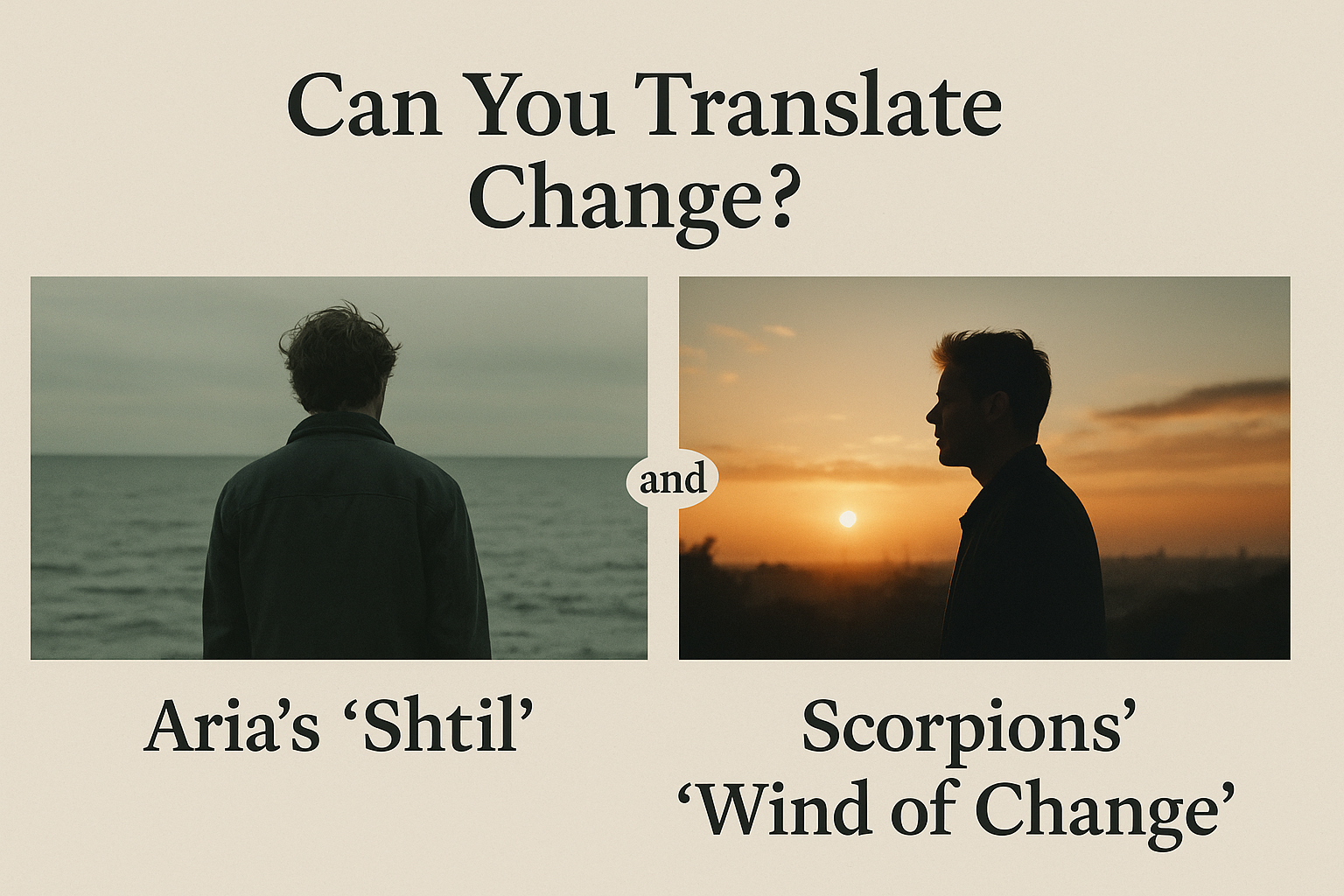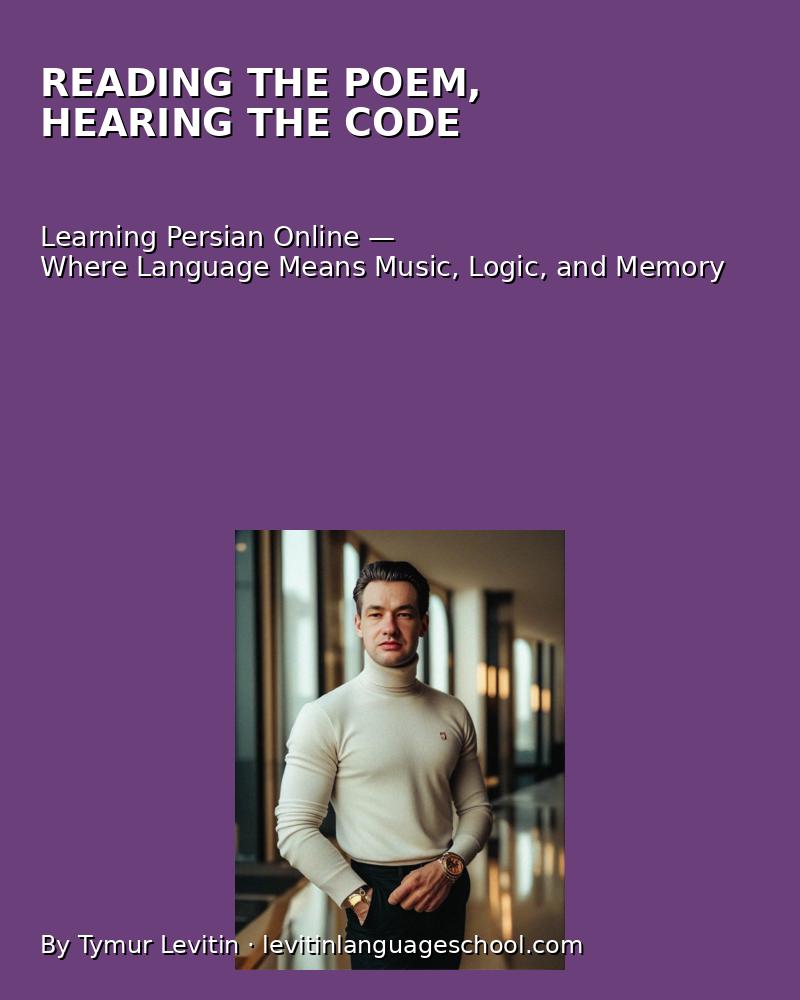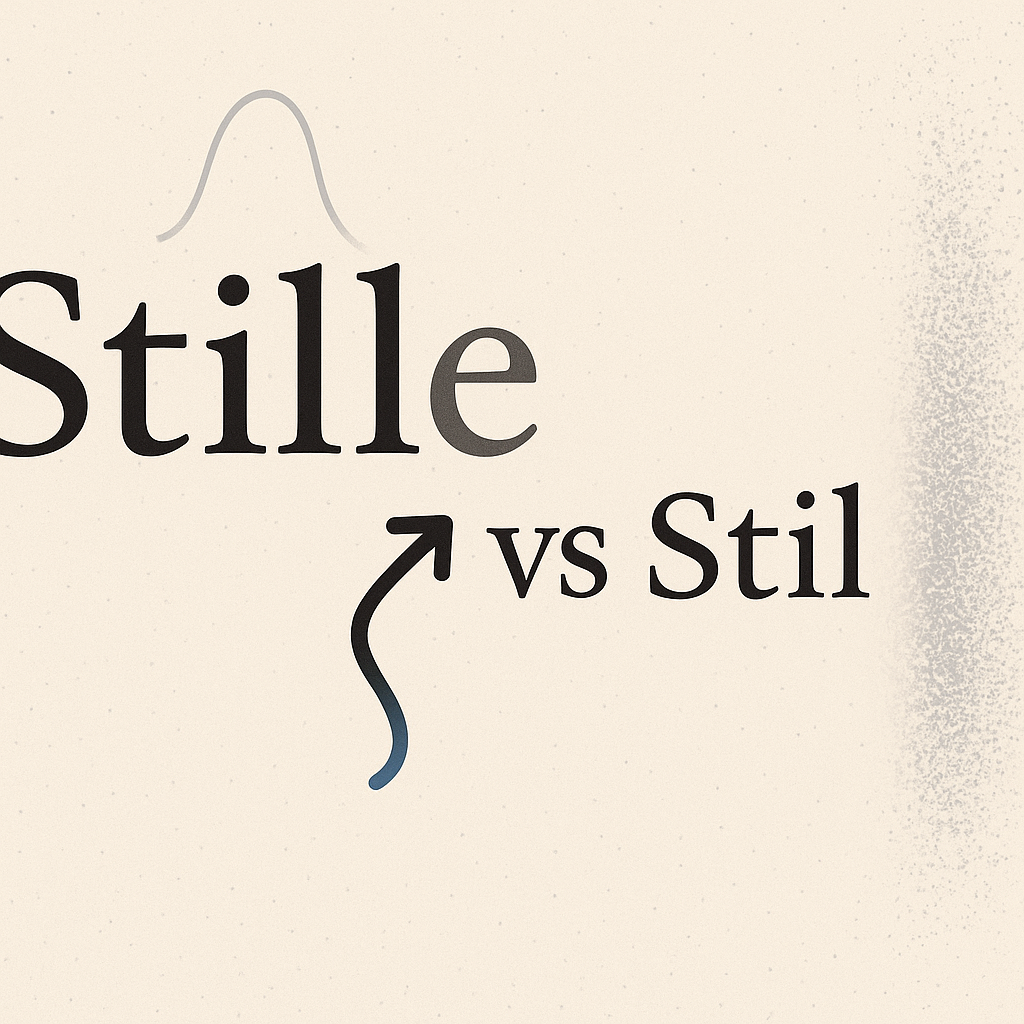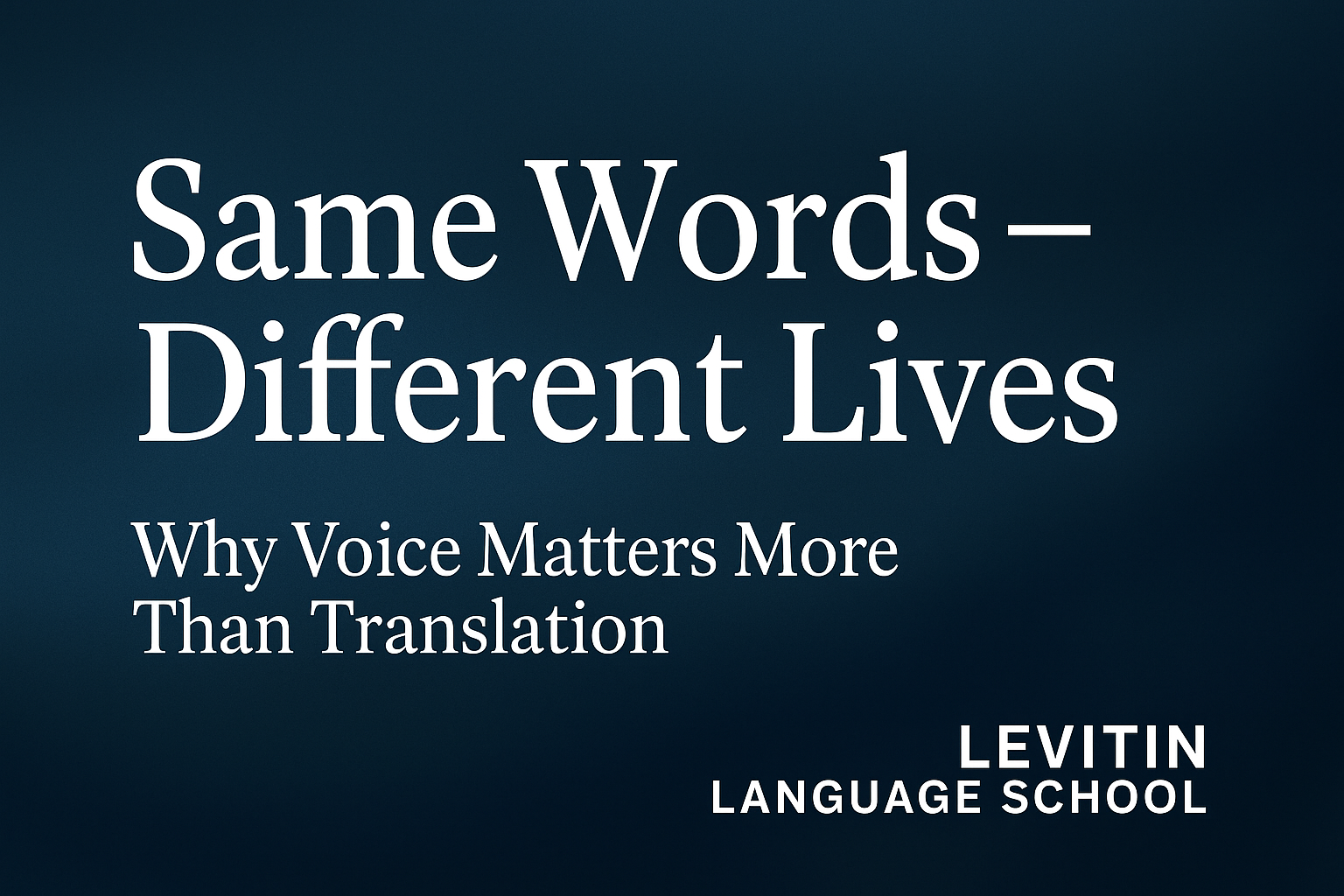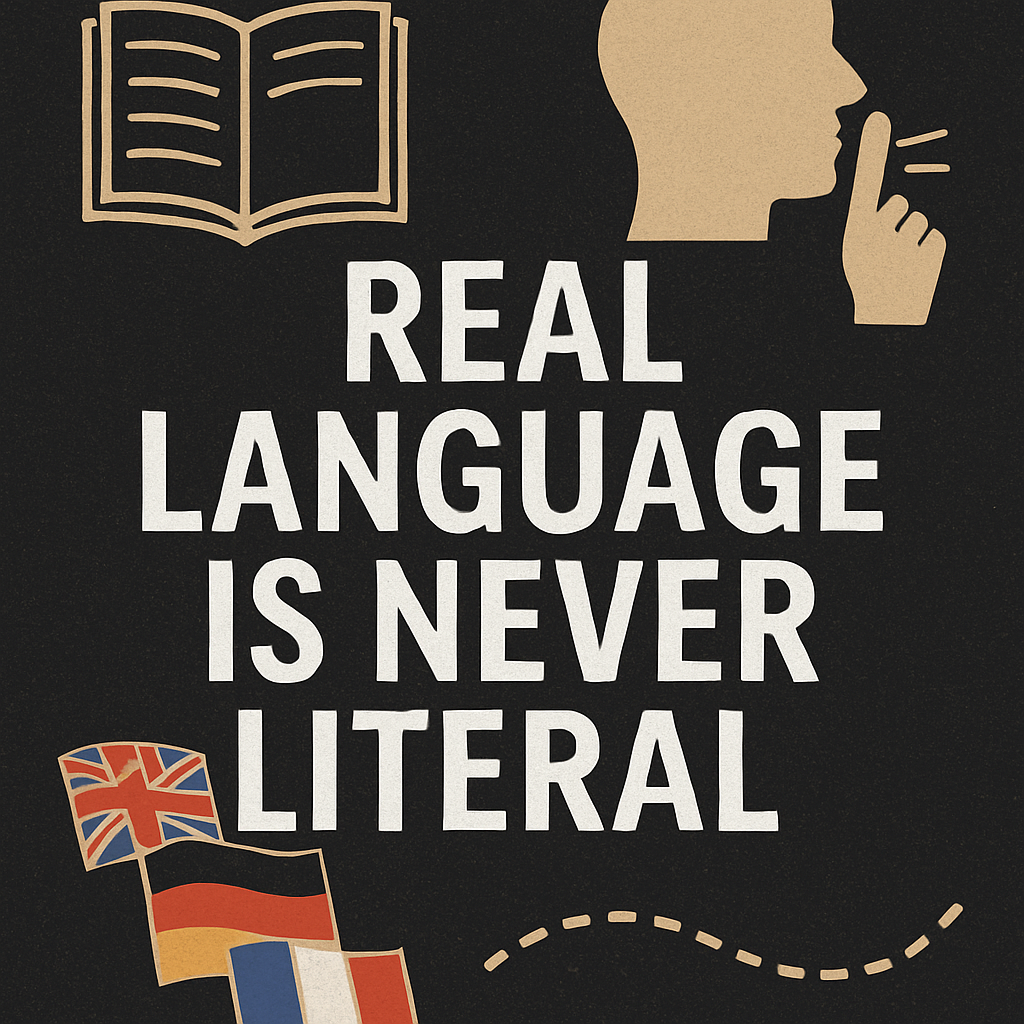👤 Author: Tymur Levitin — founder, director, and lead teacher
🔗 View my teacher profile
📝 Author’s Column: The Language I Live
Language. Identity. Choice. Meaning.
✨ Epigraph
“We don’t always fall in love with the person in front of us — sometimes we fall for the echo of our own hopes.”
A Voice That Sounds Like Memory
Sometimes a song doesn’t say much — just a few lines.
But something about it hits you like a memory you never lived.
The Russian song “Я просто выдумал тебя” — “I just invented you” — has only a few verses.
No explosion. No drama. Just soft piano and honesty.
But behind its simplicity is a truth many of us carry:
We don’t love people as they are —
we fall in love with the version of them we create.
🎼 A Translation That Hurts Because It’s True
Я просто выдумал тебя,
Ты не была со мной — но была во мне.
I just invented you.
You weren’t with me — but you were inside me.
The speaker isn’t angry.
He isn’t blaming her.
He’s just facing what’s left after the dream fades.
We all do this — we imagine. We fill in the blanks.
We assign meaning to gestures, words, silences.
And by the time we realize they weren’t real — they’ve already shaped us.
🧠 Why It Matters in Language Learning
You can’t translate this line without feeling it.
If you say:
- “I made you up” — it sounds aggressive.
- “I imagined you” — it loses the weight.
- “I just invented you” — still not quite right.
Why?
Because in different languages, the same idea carries a different tone.
And in language learning, tone is everything.
🌍 Across Languages: One Feeling, Many Words
The idea of inventing someone appears in many cultures — not always literally, but always emotionally.
Let’s look at the differences:
🟠 Russian:
«Я просто выдумал тебя.»
Literally: I invented you.
The focus is on the act of creating an illusion — it’s poetic, introspective, painful.
🟡 Ukrainian:
«Я просто вигадав тебе.»
A softer, more internal version. “Vygadaty” is not as strong as “vydumaty” — it’s more imaginative, less accusatory.
🔵 German:
„Ich habe dich mir nur ausgedacht.“
(I only imagined you.)
It emphasizes the inner projection rather than deception. The blame is on the speaker.
⚫ English:
“I fell in love with a version of you I created in my mind.”
No exact phrase exists — but the concept is universal. It appears in therapy, songs, and novels.
🟣 Spanish:
“Te idealicé.”
(I idealized you.)
A short, sharp truth — direct and emotional.
Each version tells us not only what was felt, but how a culture talks about disappointment.
Some blame themselves.
Some blame the illusion.
Some just whisper and let go.
💬 What Students Can Learn from This
When you study a language, it’s not just about vocabulary.
It’s about how people live emotions.
By understanding the space between words —
you learn what it means to speak like a human, not just like a native.
So when you say something like “I miss you”, or “I forgive you”, or even “I invented you” —
You’re not translating.
You’re living it.

🖇 Related Articles from the Blog
- 🔗 Can You Translate “Change”?
- 🔗 No Love, No Words, Just Meaning — 6 Songs That Speak Without Saying It
- 🔗 Stop Memorizing. Start Thinking.
📝 Versions in Other Languages
🏫 About the Author
Tymur Levitin is the founder, director, and lead teacher of Levitin Language School.
He teaches English and German with a focus on emotional clarity, cultural nuance, and linguistic honesty.
View his profile

















